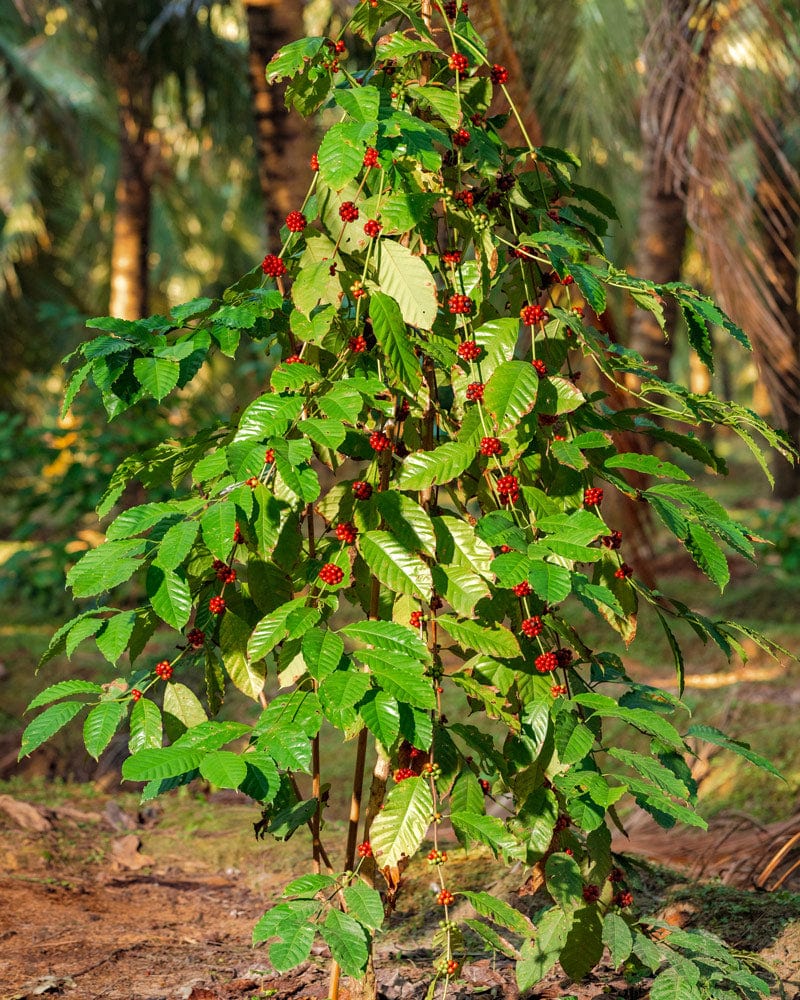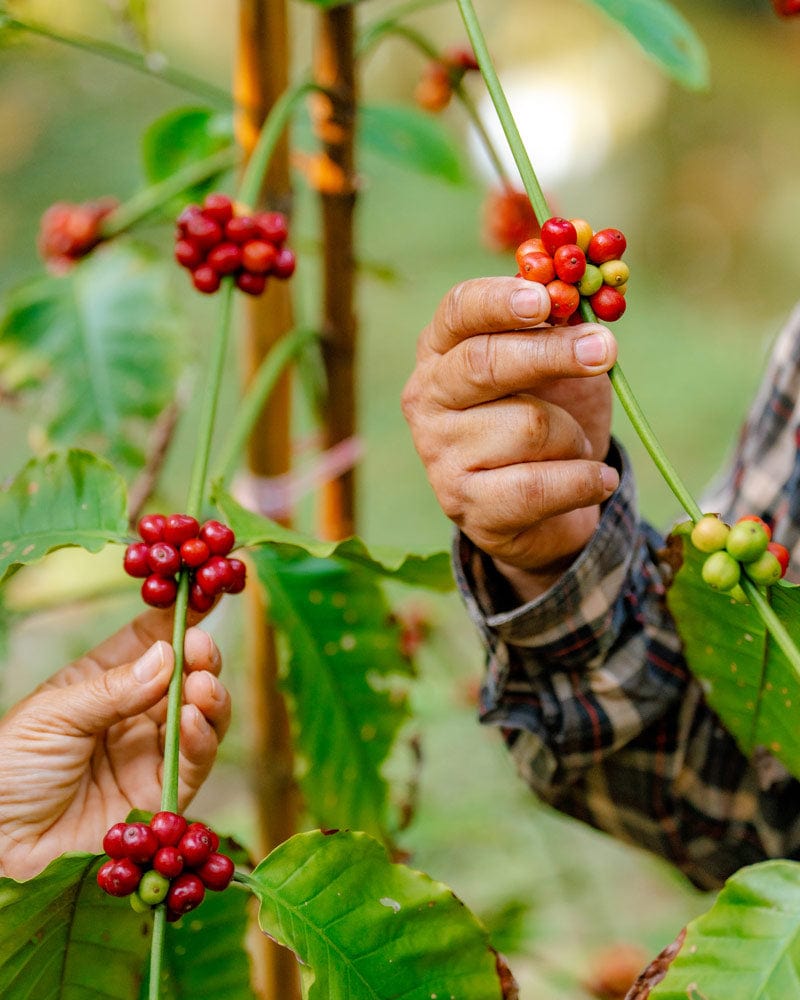The Farmers Leading the Regenerative Organic Charge
KHUN CHAMROEN
Khun Chamroen and his wife met at the farm they manage over 30 years ago, and continue to bring that love & care into their Nam Hom coconuts.
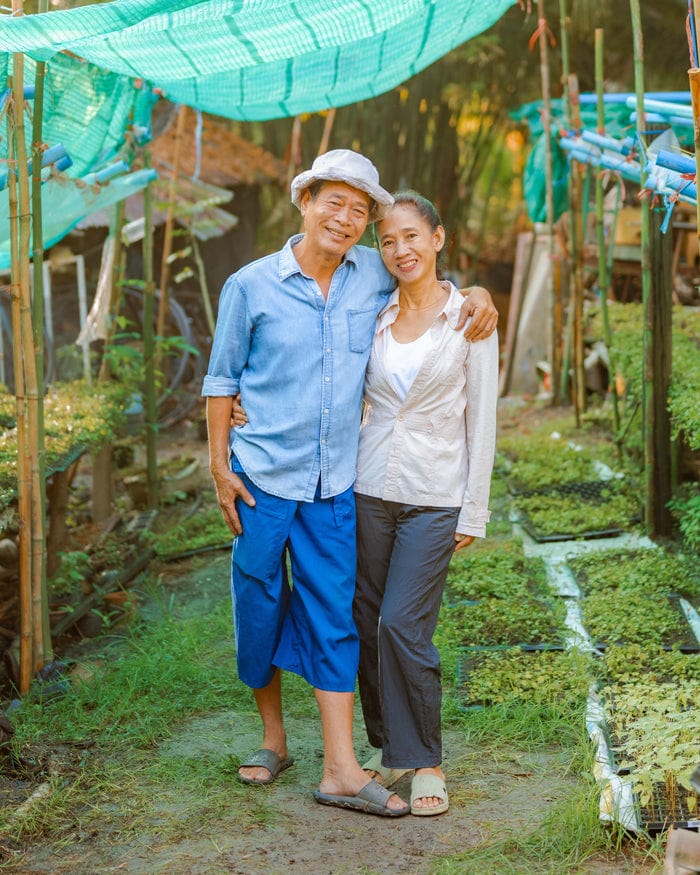
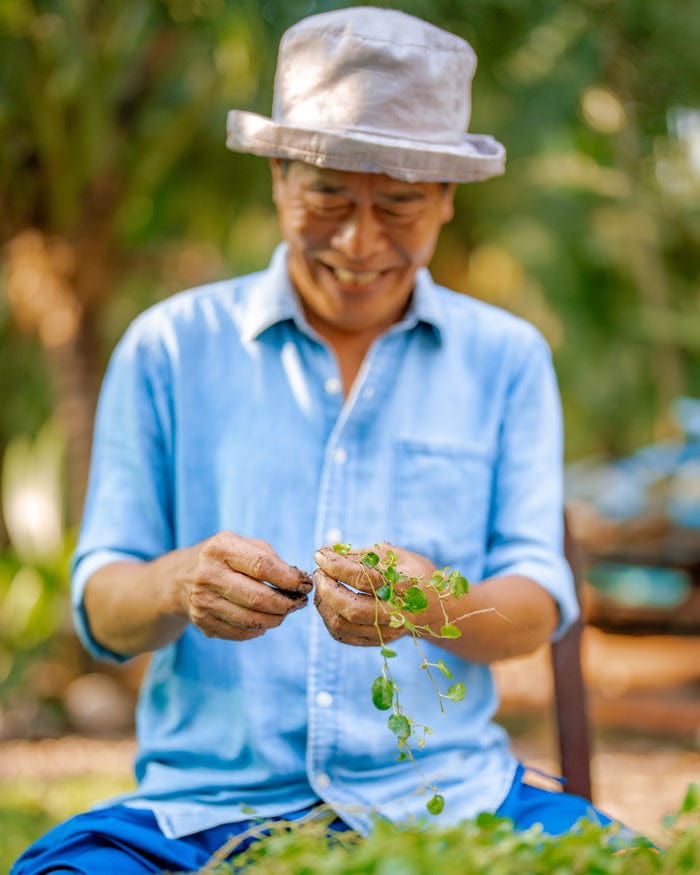
These farmers have created a large cover crop nursery of round leaf seedlings for their farm and neighboring farms. Cover crops are a critical regenerative organic practice because they protect soil from erosion and keep nutrients in the ground.
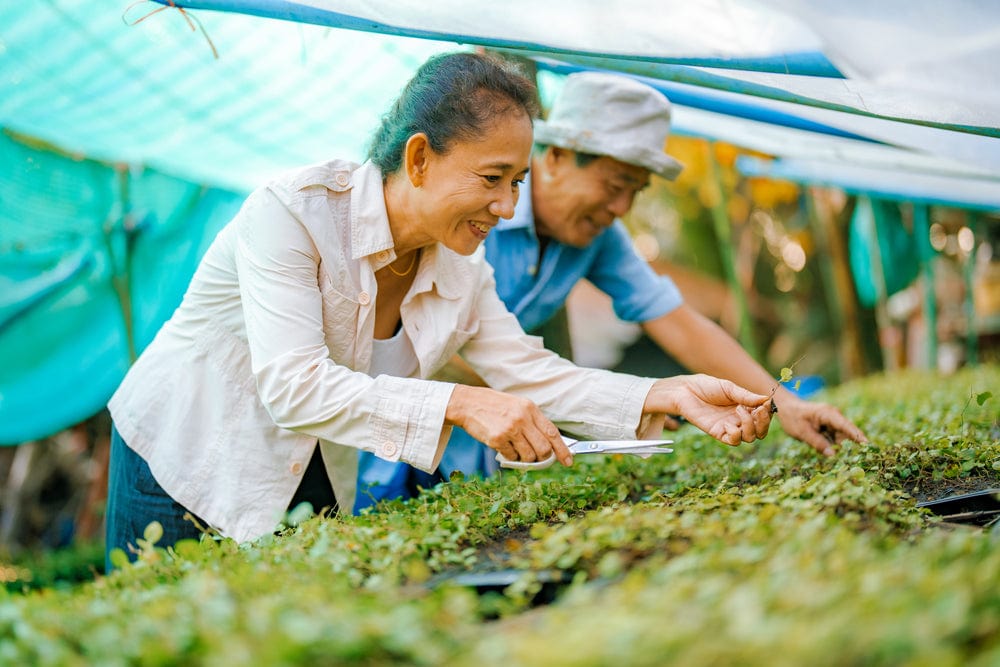
Khun Chamroen also utilizes natural canal duckweed control. He routinely releases fish into his canals that keep the duckweed under control (they eat it!) which creates cleaner, clearer water in the farm canals.
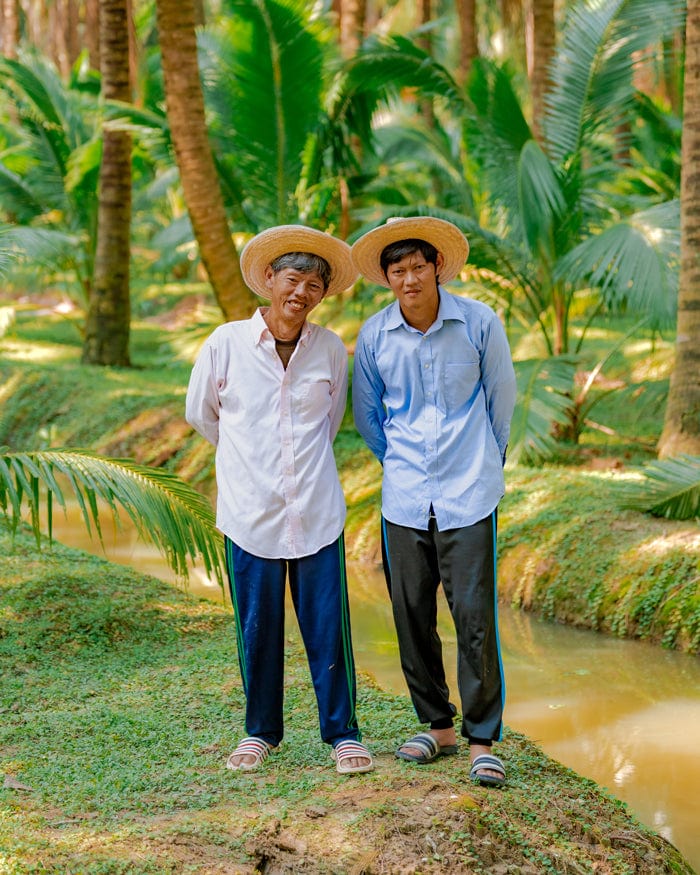

KHUN THIANCHAI
Khun Thianchai and his son have implemented several regenerative practices, including vermicompost and leaning into drying farm waste instead of letting it decompose in canals.
Vermicompost, or… raising earthworms to create vermicompost, a natural nutrient-rich fertilizer. This helps provide nutrients to the soil, which can result in healthier farms and (ultimately) increased coconut yields!
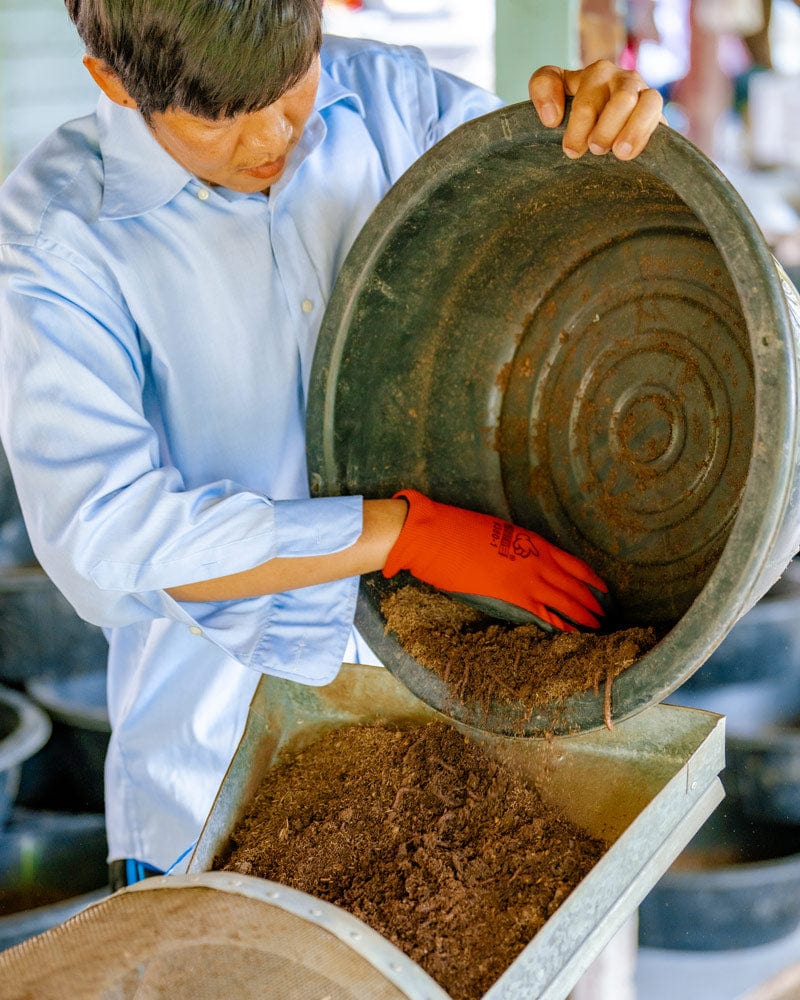
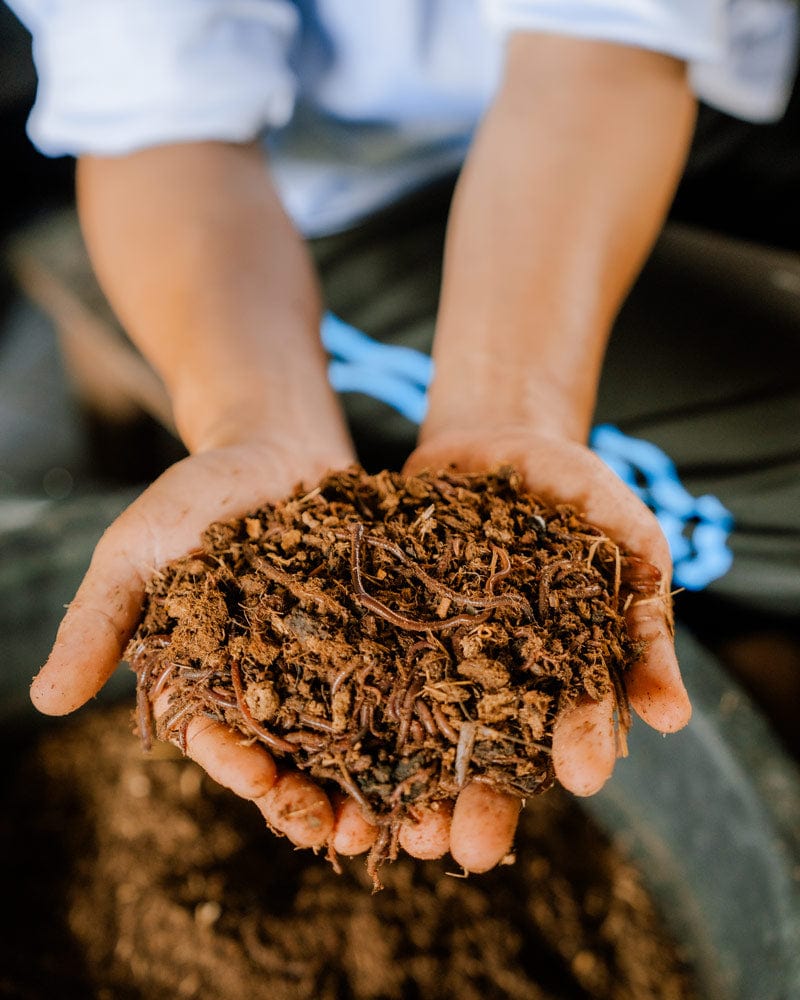
Our team of agronomists have identified that farm waste (like palm fronds and branches) getting dumped into water (the canals on our farms) as a big emitter of methane. Not good. To address this, Khun Thianchai has created dry canals for farm waste. Not only does this reduce methane emissions, it can also later be utilized in compost and those nutrients head back into the soil!
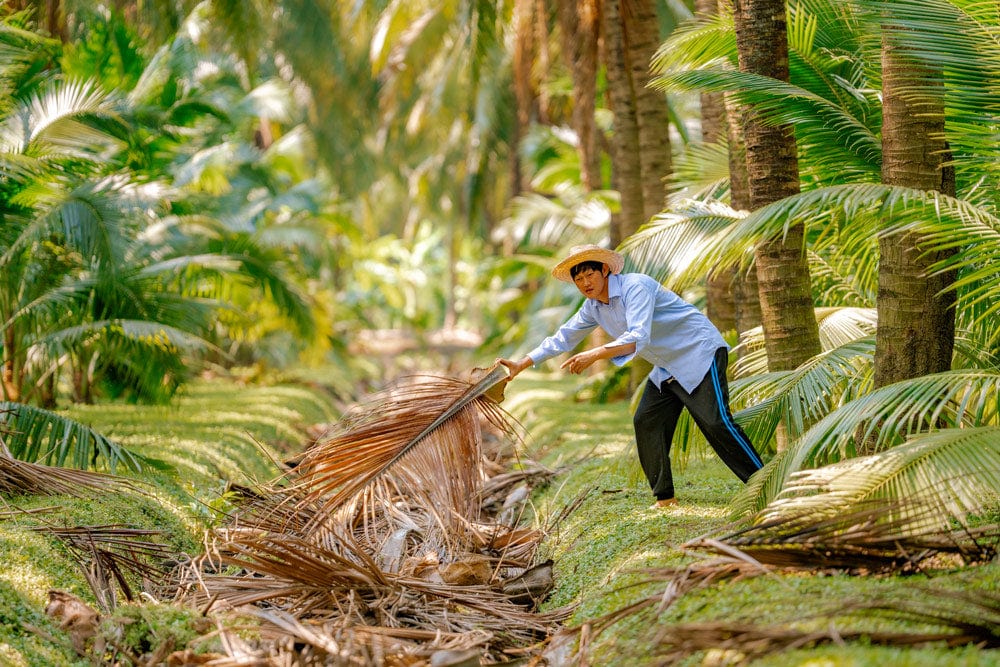
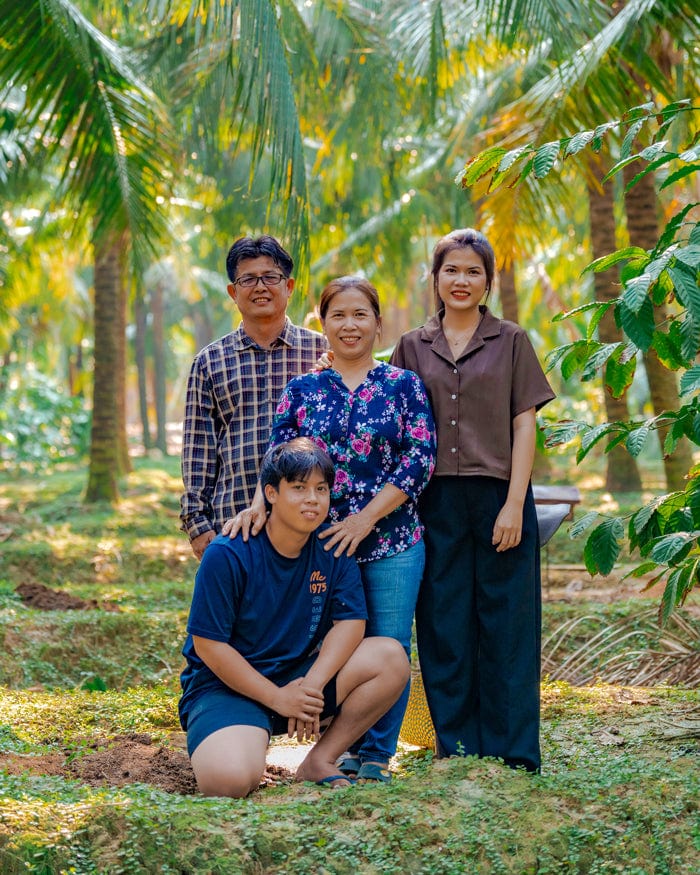
KHUN BANDIT
Khun Bandit and his family are leading the charge on implementing Nam Hom coconut regenerative organic practices, including pollinators, coconut husk compost, and intercropping.

This farm has introduced stingless beehives to support pollination and build a more biodiverse farm ecosystem.
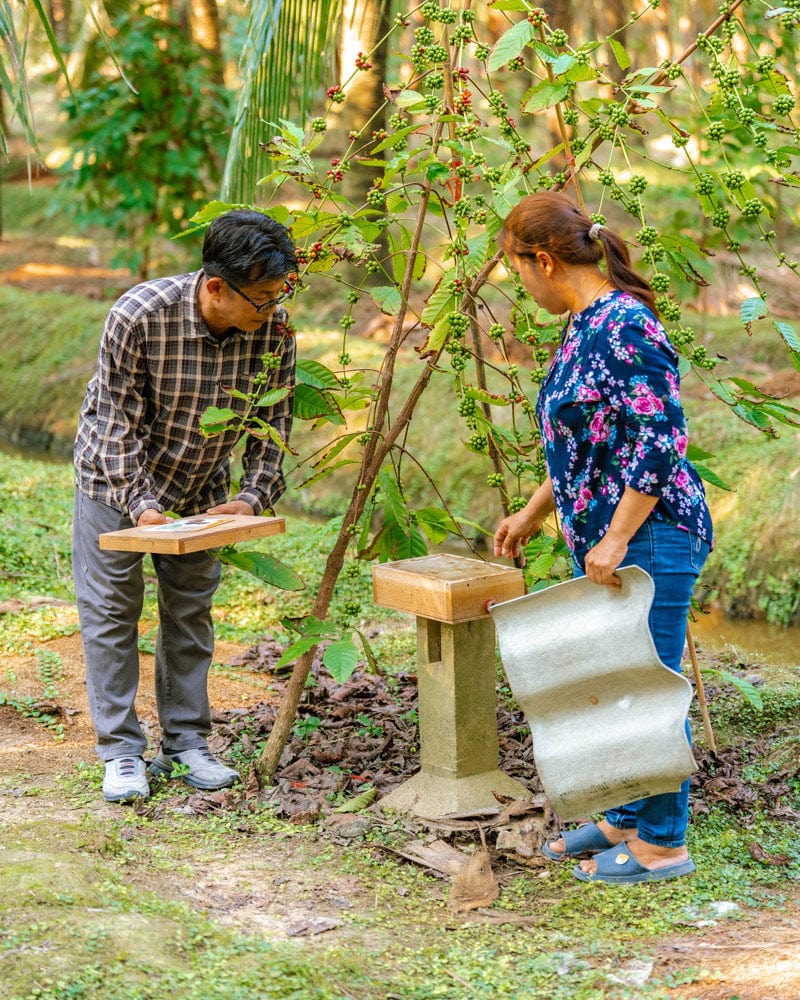
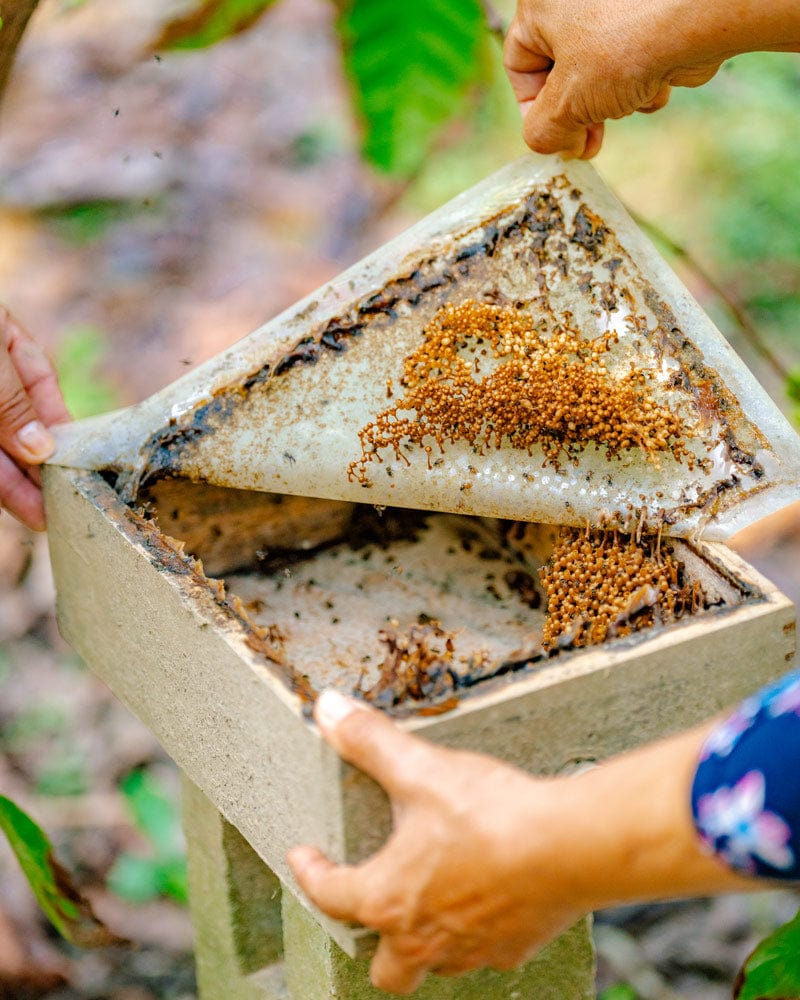
They’ve also mastered the art of transforming coconut husk waste into compost! It’s a delicate art of blending chicken poo, coconut husks and water together and letting it decompose over the course of a few months. Then all of those nutrients get mixed back into farm soil!
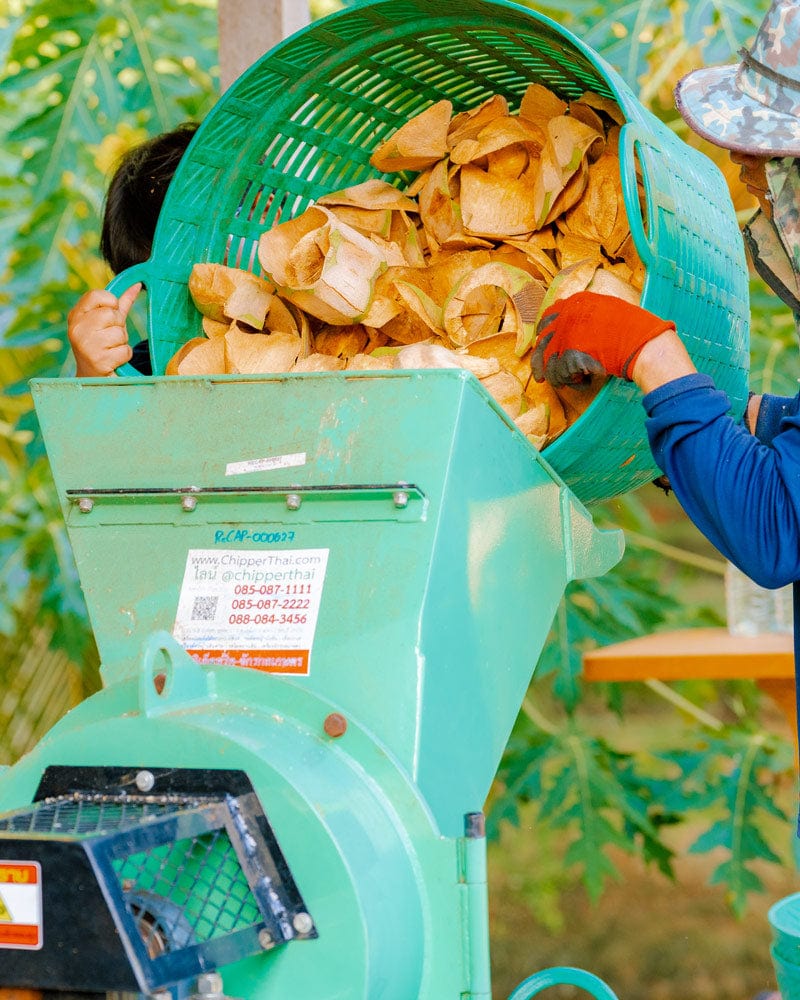
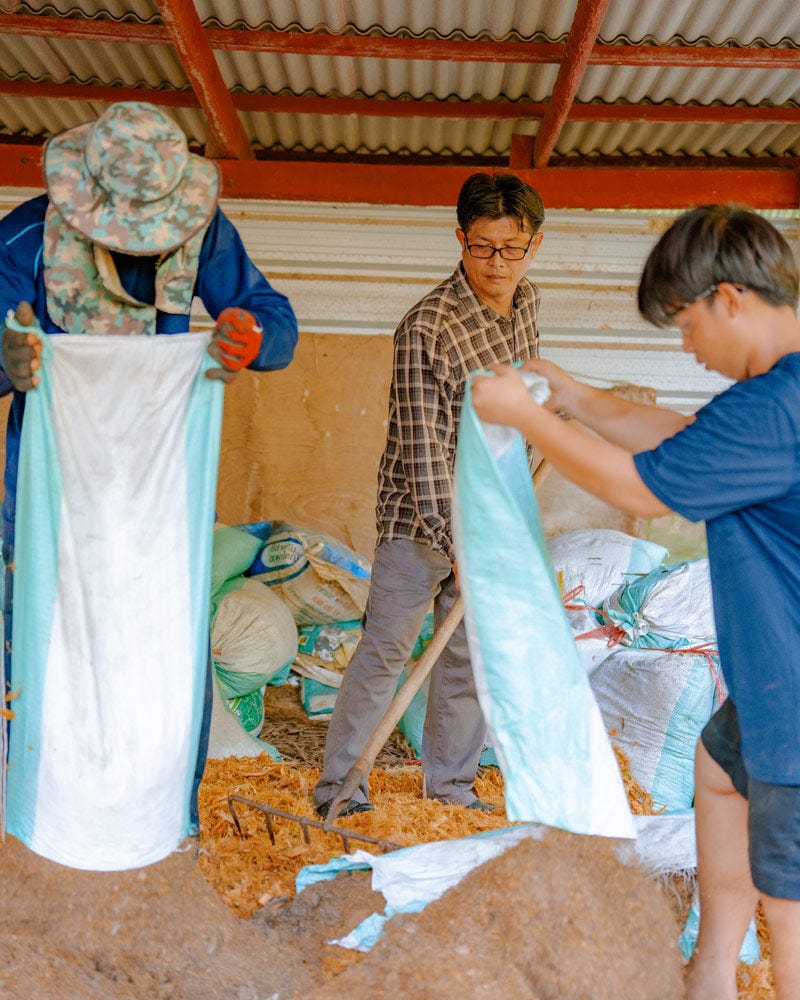
Intercropping means farming more than one crop on a farm. This helps with biodiversity and creates more financial opportunity for farmers. Khun Bandit has started growing coffee. We’re all still in the learning phase on how to make intercrops as successful as our Nam Hom coconuts, but we’re excited for the journey ahead!
